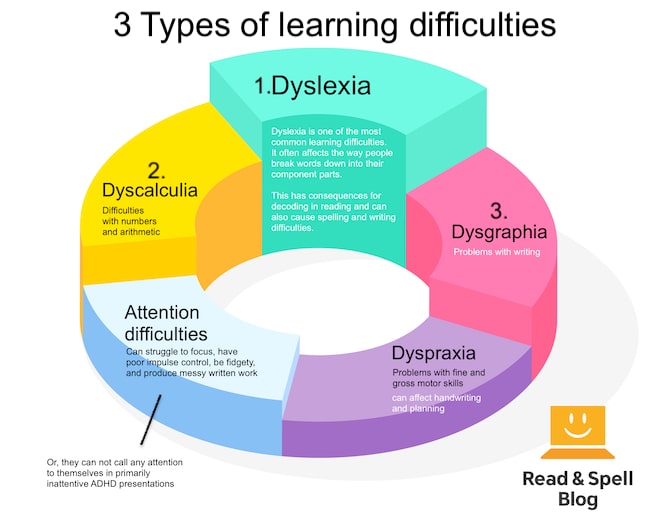Understanding The Types Of Learning Challenges And Their Characteristics
10th August 2024

In the field of education, having a thorough grasp of the wide range of learning difficulties is essential for providing effective instruction and assistance. Every kid has different learning styles and obstacles that teachers need to recognize and overcome. Read on to examine the various forms of learning challenges and their attributes, providing insight into how teachers may more effectively meet the requirements of a wide range of students.
What Do You Understand By Learning Disabilities?
The term ‘learning challenges’ refers to a wide range of obstacles that learners could run against when trying to learn and absorb information. These difficulties might appear in several ways, affecting both academic achievement and the whole educational process. Every problem needs a different set of strategies and interventions, such as focus problems, memory problems, processing speed issues, and problems with reading, writing, and math.
What Are The Various Types Of Learning Challenges?

Here are the most common types of learning challenges that students in your classroom might be having:
- Dyslexia
Despite normal intellect levels, dyslexia, one of the most well-known learning disabilities, impacts reading comprehension and fluency. Dyslexics may experience difficulties with spelling, word recognition, and word decoding.
- Dysgraphia
This learning challenge has to do with writing challenges. It may show itself as having difficulties with spelling, penmanship, and thinking organization on paper.
- Dyscalculia
It might be difficult for students with dyscalculia to comprehend and manipulate numbers. Mathematical thinking, temporal concepts, and simple arithmetic operations could be challenging for them.
- Attention Deficit Hyperactivity Disorder (ADHD)
ADHD has an impact on a student's capacity for impulse control and focus. This may make it tough to remain on track, adhere to directions, and finish work.
Before you move to the topic, can we ask you a quick question? Do you follow us on Social Media? If not, then you’re missing out on a lot of informative content. We regularly share upgraded educational content, tips, feedback, and more. Check us out by clicking the profiles here - Facebook / Twitter / LinkedIn / Pinterest / Instagram / YouTube
A Few Characteristics Of Learning Disabilities
Neurological disorders known as learning impairments have an impact on an individual's ability to absorb, process, store, and respond to information. They can have a major influence on everyday activities and academic attainment and are frequently lifelong.
Typical traits include the following:
- Slow Processing Speed
Inability to comprehend information rapidly, which can impact social relationships and academic work.
- Memory Problems
Difficulties affecting learning and memory retention are related to either short-term, long-term, or both types of memory.
- Inadequate Organization Skills
Challenges keep ideas or resources organized, which makes it difficult to finish projects or assignments.
To use accommodations and tailored learning practices that can support children in thriving in learning environments, educators must be aware of these traits.
How To Address The Learning Challenges In Education?
If you are a teacher struggling with addressing the learning disabilities of the students in your classroom, here are some strategies you can adopt:
1. Effective Teaching Strategies
Personalized learning plans, focused treatments, and early identification through tests are effective techniques for tackling learning problems. By using assistive technology, implementing multimodal teaching strategies, and cultivating a positive learning environment, teachers may build inclusive learning environments.
2. Proper Understanding
To provide all children with an inclusive and encouraging learning environment, it is essential to recognize and treat learning problems. Understanding the many forms and traits of learning challenges enables teachers to modify their methods and offer the assistance students need to succeed academically and personally.
3. Specialized Training Courses
Teachers may successfully help students with learning issues by enrolling in specialized training courses like those provided by the Vidhyanidhi Education Society. These courses give educators the necessary information and skills. The Learning Disability Training Course offers insights into treatments and best practices that are customized for a range of learning requirements.
Leverage Training For Learning
Teachers who have pursued Online Learning Disabilities courses may have a significant influence on the lives of kids who are struggling with learning. They can do this by utilizing their expertise and specialized training to make sure they get the help and direction they require to succeed in school and beyond.
We believe education should be accessible to everyone. That’s why we don’t charge for our blogs. Find the right course that will help you in your career with us, contact us at 1800–212–6400. You can mail us at act@asiancollegeofteachers.com
Written By: Sheetal Sharma